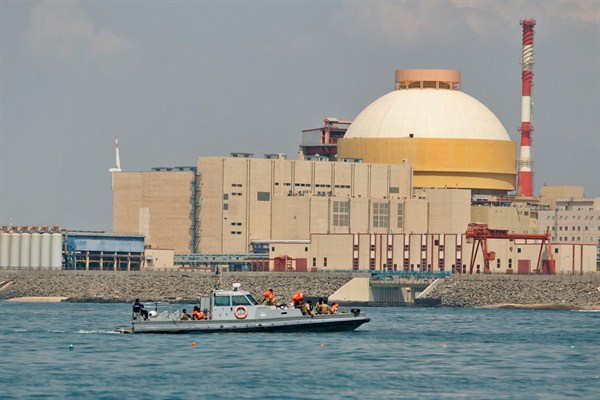On June 22, India announced that it had ratified an additional protocol with the International Atomic Energy Agency (IAEA), marking the country’s latest measure to implement a controversial nuclear cooperation agreement reached with the United States in 2008. However, this marginal step forward should not obscure the fact that the pact has yet to produce the promised economic benefits for the two countries. Meanwhile, its strategic benefits have been decidedly mixed, including striking a significant blow to the nonproliferation regime.
Between 2005 and 2008, the Bush administration and the Indian government reached agreement and won support in their legislatures and among other nuclear suppliers for a radical change in India’s relationship with the international community. Until the agreement, India, which is one of only three countries never to have signed the nuclear Nonproliferation Treaty (NPT), had largely been cut off from nuclear trade after testing a nuclear explosive in 1974 and developing a nuclear weapons arsenal. The 2008 pact allowed it to acquire reactors and desperately needed uranium from the international community. In return, India agreed to permit greater monitoring of its peaceful nuclear facilities—so-called IAEA safeguards—to ensure that any imported material wouldn’t end up in its nuclear weapon sector. The Bush administration saw the deal as a means of winning access to a potentially lucrative market for nuclear and other exports, particularly defense trade, and as a means of nurturing a counterweight to a rising China. Nonproliferation experts, on the other hand, warned that it would strike a blow to the NPT.
Since then, there is little evidence of a fundamental shift in Indian policies toward significantly greater alignment with the United States; instead, India has retained its longstanding tendency toward nonalignment. On the other hand, the India agreement has damaged the credibility of the U.S. commitment to nuclear nonproliferation, arguably making it harder for the United States to insist upon tough nonproliferation conditions with countries that pledged, under the NPT, not to possess nuclear weapons—from allies such as South Korea to partners like Vietnam and adversaries such as Iran.

